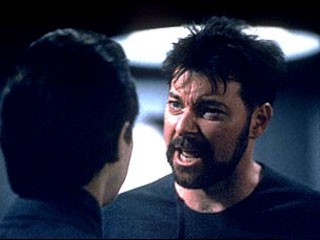@Omega1759:
I also don’t understand why Luntjens wouldn’t go after the cruisers and the Prince of Whales. I understand the importance of sinking merchant ships, but losing additional warship would have been a big blow for the Royal Navy.
In the actual Bismark operation (not the movie), Lindemann likewise strongly disagreed with the decision by Lutjens not to go after the crippled Prince of Wales after Hood was sunk. This is one of those cases where both men had a valid point, and in which the Germans didn’t possess information which might have been decisive, but in which, on the whole, Lutjens did made the wrong call.
Lutjens was right about the fact that his primary mission was convoy-raiding, and about the fact that Hitler was skittish about risking his prize battleship in a major sea battle. That being said, one gets the feeling that Lutjens wasn’t the kind of admiral who was prepared to take full advantage of an unexpected target-of-opportunity situation. (And he was certainly not a William Halsey-type admiral who was inclined to charge in battle first and think later.) Lutjens sat in silence for a long time when he heard that two major British warships – they turnd out to be Hood and PoW – were approaching, and as I recall he continued to do so even when the British ships started shooting, to the point where Captain Lindemann made the comment that he wasn’t about to let his ship get shot out from under him. Not exactly the kind of aggressiveness that Nelson would have approved of.
Blowing Hood out of the water in just six minutes should have given Lutjens a large morale boost (it certainly did so to the Bismarck crew in general), and so should have the fact that Bismarck damaged PoW sufficiently to cause her to disengage and retreat. Lindemann was quite correct in thinking that Bismarck had a golden opportunity to finish off a second British capital ship right after sinking Hood, and that this would have shocked Britain (and caused elation in Germany) even more than the sinking of Hood did, and he was quite correct that it was lame for Lutjens to dismiss that opportunity on the grounds that this wasn’t his mission. On the other hand, neither men knew the full extent of PoW’s condition. Critically, they had no way of knowing that the almost-brand-new PoW was having teething problems with the anti-flash shutters on its main guns, which tended to jam in combat. And in fairness, the stark reality was that the Royal Navy could afford to lose two capital ships to a far greater extent than Germany could afford to lose the Bismarck. Lutjens, in the end, may simply have been operating under the same principle that kept British and German capital ships in port for most of WWI: given how hugely expensive these ships were, it was considered more important for them to stay afloat than to sink the enemy.









